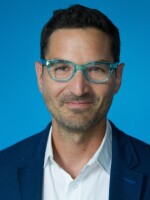GUY RAZ, HOST:
Staying overseas, and to Egypt now, where election officials have stunned voters by banning three of the top contenders running in the country's upcoming presidential elections. Those candidates include Omar Suleiman, the vice president under Hosni Mubarak, the other two, a powerful leader from the Muslim Brotherhood and an ultra-conservative Islamist cleric.
The announcement late yesterday has thrown the entire race into turmoil just as Egyptians were hoping to begin to move past the Mubarak era. NPR's Soraya Sarhaddi Nelson is in Cairo. And, Soraya, why did the election commission disqualify these three men?
SORAYA SARHADDI NELSON, BYLINE: Well, as you mentioned, one of them was Omar Suleiman, the former vice president and intelligence chief, and he didn't have the requisite number of signatures from one area south of Cairo which he needed in order to run. And then there was the Muslim Brotherhood candidate who's the businessman and financier of the group, Khairat el-Shater. He was disqualified because he was previously a political prisoner and he - not enough time had passed since his sentence, according to the commission.
And then last but not least, we have the Salafist preacher who was running, Hazem Abu Ismail, who has a mother with U.S. citizenship, dual citizenship, basically, U.S. and Egyptian. And according to Egyptian law, all the presidential candidates, and their parents and spouses, must only hold Egyptian citizenship.
And it's important to note that there are seven other candidates who've been disqualified as well for a variety of reasons, and so that basically meant the commission last night removed nearly half the candidates in the race.
RAZ: Hmm. Can they appeal, and do they plan to?
NELSON: Yes. They have until tomorrow night to do that, and most of them have already said they will appeal.
RAZ: How is this round of disqualifications being received by the public in Egypt?
NELSON: Well, it's shocking for many here. It's just very difficult, especially for the backers of the Muslim Brotherhood candidate and also of the Salafist or the ultra-conservative preacher candidate. There has been discussion of protests taken to the streets, that sort of thing.
But I think there are a lot of Egyptians who are also quietly breathing a sigh of relief. Many were concerned that the ruling generals would try and manipulate the process and put Omar Suleiman back in, which would basically mean that even though Mubarak was gone there was no real regime change and they would still be running the country.
And then there were others, of course, who feared that if the Islamists also took the presidency that the country would really be on an Islamist path. And certainly, there is some belief here, anyway, that the Americans were also breathing a sigh of relief for this particular reason, that they really don't want an Islamist-dominated Egypt. In fact, news reports here suggest the U.S. was very cooperative in providing information that discredited Abu Ismail, the conservative preacher.
RAZ: Soraya, if this ban is upheld - I mean, these were the frontrunners - who will replace them? I mean, what is it going to mean for the election for Egypt?
NELSON: Well, it's sort of like the old team, I mean, the candidates that we've been hearing about before these three suddenly popped up in recent weeks. One is the former secretary general of the Arab League Amr Moussa. Another is a former Muslim Brotherhood leader and moderate Islamist Abdul Moneim Aboul Fotouh. The Brotherhood leaders are very concerned about the latter candidate, and so they're going to field the current head of their political party, Mohammed Morsi, as well. So those three are going to be the ones to watch.
RAZ: That's NPR's Cairo bureau chief Soraya Sarhaddi Nelson speaking to us from the Egyptian capital. Soraya, thanks.
NELSON: You're welcome, Guy. Transcript provided by NPR, Copyright NPR.



